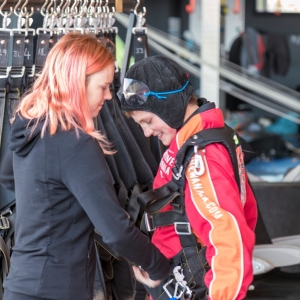What safety procedures does your tour operator employ?
New Zealand Educational Tours (NZET) has been in the tourism industry for over 25 years and is a highly respected tour company that is leading the way with passenger safety in New Zealand. They are New Zealand’s number one youth tour operator, exclusively using 5 star coaches fitted with seat belts. Not only does NZET have general RAMS forms for its tours, but also holds the RAMS for all their activity providers. NZET also only uses activity providers who are also Qualmark endorsed. Beyond the relatively simplistic RAMS documents, NZET also holds 60 different document types related to passenger safety. These are far more comprehensive and include but are not limited to licencing agents such as: The Civil Aviation Authority which licenses all fixed and moving wing aircraft operations, such as helicopter flights and skydiving. Operators are subject to independent audit and have various codes of compliance. Water based activities may be governed by the Maritime Transport Act which requires a maritime document (activities e.g. Interislander, jet-boating, rafting). Operators of this type have to have Maritime Safety Management Systems which are audited by Maritime New Zealand. Certain Adventure Activities are required to be registered with WorkSafe and have an independent safety audit.
Is all this safety paperwork really necessary?
One would also sometimes wonder if the lay person were to read hundreds of documents related to student safety on activities, if the students would in fact be any safer. One would think that if the experts have the proper accreditation, licences, rigorous safety audits and establish systems, this would be a greater assurance of student safety than a three page RAMS document? Just a thought.
Safety procedures for students travelling in New Zealand
With regards to general safety operations, with NZET no student can participate in any optional activity on tour without their parents’ permission. On the first evening of the tour the tour manager discusses with the tour participants general safety details. Participants are advised to stay within restricted areas (e.g. glaciers, Punakaiki Rocks) before participating in an included activity and to follow the instructions of the tour manager if at an activity or attraction. Food Safety is discussed and Emergency Contact Detail Business cards are distributed. Drinking laws are discussed and the supply of alcohol to minors discussed with any students who are 18.
Police vetting and staff-student ratios
It’s also important for schools to understand if a company has rigorous police vetting procedures relating to all their staff and drivers and that their tour Mangers and Tour assistants are used to dealing with teenagers and the added responsibility which comes with that. This includes having appropriate adult to student ratios on all activities and increased numbers of adults around water based activities. Staff should also be aware of where students are at all times with strict curfews and room checks to make sure the correct students are in the correct rooms and everyone is accounted for at night. A good tour company will also have group activities available for students in the evenings so they are less likely to stray.
Choose an established Tour Operator with established procedures
So if your list of health and safety boxes to tick is long and arduous. Seek a professional, established tour company who can take the pain out of organising student travel. Then, with the Health and Safety elephant out of the room, we can all just concentrate on giving students a fun and educational experience that is often the highlight so far in their young lives!


